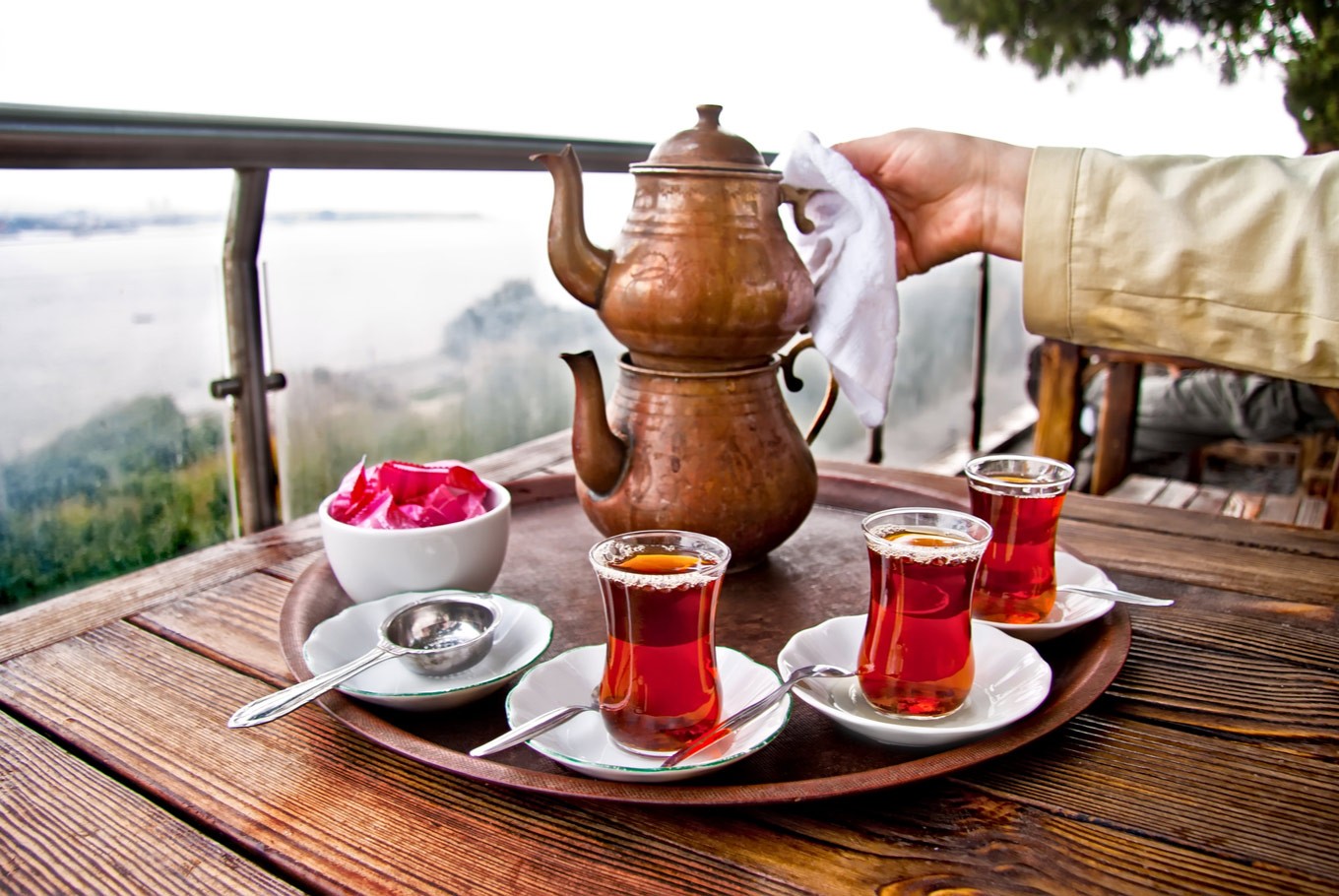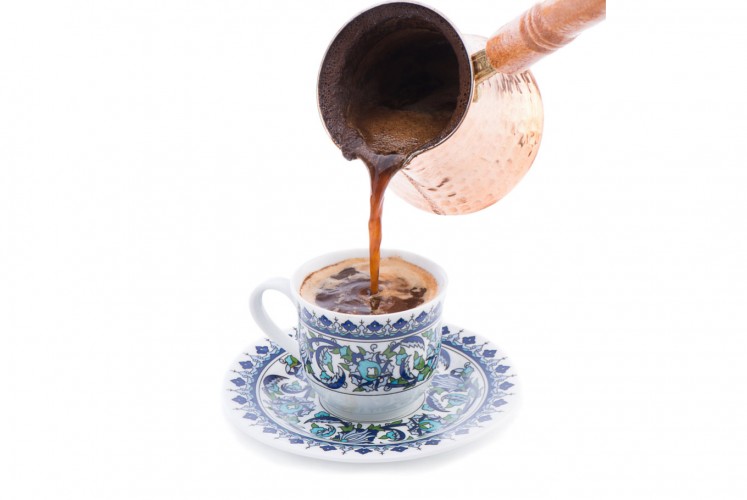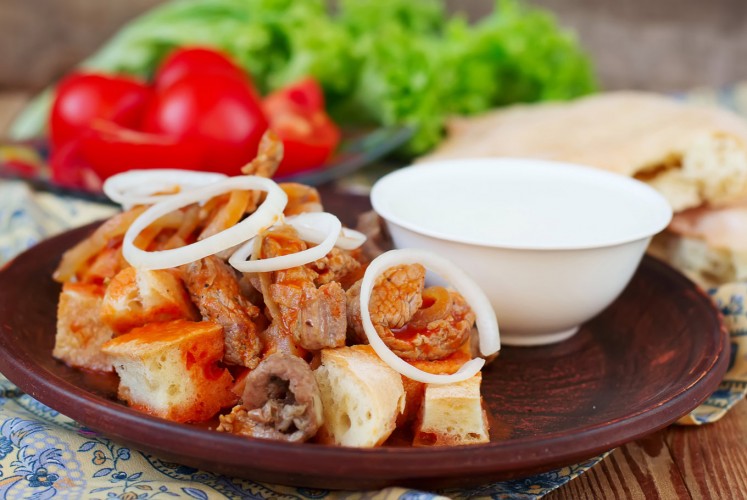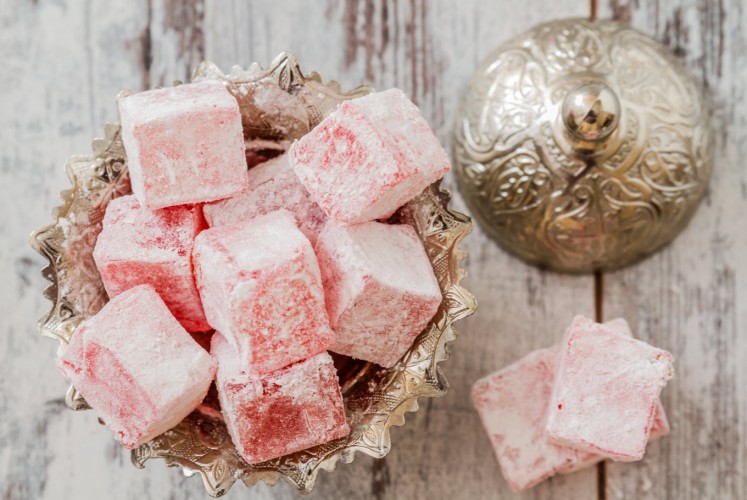Popular Reads
Top Results
Can't find what you're looking for?
View all search resultsPopular Reads
Top Results
Can't find what you're looking for?
View all search resultsChay, kebab and lokum: A Turkish food experience
Turkey is renowned for its coffee, kebabs and sweet desserts, so it came as a pleasant surprise to find out they have a strong tea tradition as well.
Change text size
Gift Premium Articles
to Anyone
When it comes to tea, the Turks, unquestionably, beat the Brits.
Turkey is renowned for its coffee, kebabs and sweet desserts, so it came as a pleasant surprise to find out they have a strong tea tradition as well.
Everywhere, from the time you enter an office, a restaurant, a shop or someone’s home, tea — or chay in Turkish — is offered as a sign of friendship and hospitality.
“We love drinking tea at any time of day. There’s never a bad time to drink tea in Turkey,” explained Ozlem Batal, while showing us how to properly prepare tea at her family’s home in the Kurucesme area in Istanbul.
Turkish tea, classified as black tea, is brewed in a beautiful two-tier tea pot called a çaydanlik, and is served in a small, tulip-shaped glass that lets the drinker appreciate the tea’s crimson color.
Read also: A walk between continents in Turkey
The tea is not traditionally consumed with milk or lemon, only sugar cubes. Many times, the tea is served along with delicious sweet and savory biscuits and cakes.
The Turks are proud of their tea tradition, taking it with them wherever they go.
Turkish Airlines regional commercial manager Nevin Ekiz Bolat said she always has a pot of Turkish tea brewing in her home and office in Jakarta.
“I even encourage my staff to try making tea the Turkish way, and they enjoy it,” she said with a laugh.
Turkey is also famous for its coffee, which, just like tea, is meticulously prepared in a small hand-held kettle called a cezve and served in elegant, small cups and saucers.
The Turks are said to be very proud of their coffee and even consider it their gift to the world.
The strong coffee tradition was evident as seen by the long line of people waiting to buy freshly ground coffee outside Kurukahveci Mehmet Efendi, considered the most famous coffee shop in Turkey, nestled at the back of the Spice Bazaar.
If you don’t like your coffee strong, then try to sip slowly as Turkish coffee tastes like a rough version of espresso.
Istanbul is also a heaven for meat lovers.
Despite the popularity of the many dishes that reflect Istanbul’s rich history as a cultural melting pot, the world-famous Turkish kebab and doner remain the most sought-after dishes.
Kebab is a dish where the meat is caked around a skewer and grilled over a charcoal fire, while for döner, the beaten pieces of seasoned meat are skewered on a spit and grilled vertically.
İskender Kebab — which is döner meat served on pieces of pide (traditional pita-like bread) with butter and yogurt on the side — is found in many corners of Istanbul.
My personal favorite was lahmacun, a thin pizza-like dish with a topping of finely minced meat with onions and spices and served with tomatoes, lettuce, parsley or rocket and lemon.
“You place lettuce and the other things on top of it, squeeze lemon on it, then roll it,” Bolat said while showing how to eat the dish.
Another mouthwatering dish is manti, which Batal served at her home.
At a glance, the dish closely resembles ravioli, but the traditional Turkish dumpling is its own thing, with a filling of ground meat, mint and spices, served hot with tomato sauce and yogurt. “It’s prepared in the classic
Anatolian style,” Batal said.
Turkish delight (Shutterstock.com/File)Traveling to Istanbul without trying baklava — a nutty, syrupy pastry dessert — is practically forbidden. Baklava’s ingredients are probably simple but the meticulous craftsmanship in making the dessert, especially the dough layers, is the key.
Lokum, or Turkish delight, is another sweet temptation.
The nougaty dessert comes in a variety of flavors and fillings and is lightly dusted with powdered sugar.
My favorite filling is definitely double-roasted pistachio, with its sweet and nutty flavors lingering on long after I left Istanbul.














